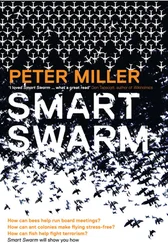The woman stared at us with naked amazement for a moment, then looked at Zavier. He and she – his wife, I supposed – conversed briefly in Creole. The discussion woke their children, who were thrilled and astonished by their foreign visitors, and rushed to us in their underwear despite the best attempts of their parents to restrain them. The resulting uproarious chaos broke the awkward mood and soon we were all laughing.
The children interrogated us first in Creole and then in French, which the older two, both girls, spoke remarkably well. “ Vous etes du quel pays? ” the first asked. After I explained our nationalities, the other wanted to know “ Vous avez venir ici dans une aeroplane? ” Before I could answer, their youngest son demanded, to the hilarity of all, “ Vous connaissez David Beckham? ”
Laughter came surprisingly easily considering how many bullets we had dodged over the last twenty-four hours. Now that we were in a safe place at last, life felt inexpressibly full of sumptuous splendours, and the squalor of Zavier’s house seemed as delightful as a castle. I couldn’t remember the last time I had felt so giddily, unreasonably happy. Zavier’s wife, who didn’t speak French, seemed to want to apologize for our breakfast of rice, beans, and plantains, but it tasted better than that at any three-star Michelin restaurant. There was a lot to be said for dicing with death and winning.
“What are you going to do with your money?” I asked Zavier. “ Qu’est-ce que tu ferai avec son argent? ” I was never quite sure when to use the formal vous and when the familiar tu, but I figured the latter was probably a safe choice when talking to a man who had recently saved my life several times.
“I will buy a taptap,” Zavier said, flashing his golden teeth in a dreamy smile. “Maybe two taptaps. To bring me income. They will buy school for my children, and a house with water and electricity. I will drive one when I want, and when I do not, other men will drive for me, and I will stay with my family.”
I had to admit the notion sounded pretty paradisical.
“So what’s the plan?” I asked as we finished the last fragments of breakfast, after Zavier’s wife had dressed his children in their precious uniforms and escorted them off to school.
Anya, Jesse and Sophie looked at one another. For a moment I was glad to be the ordinary guy in a room full of genius. It meant I could turn my mind off and just follow along when decisionmaking seemed too troubling. And our problems had by no mean ended; we were still on the run with no money and no ID, nothing to our names but our clothes and Zavier’s assistance.
Jesse said, “I’d like to have a better idea of what the hell is going on before I made any decisions.”
“You and me both,” I agreed.
I tried to make sense of things. Sophie’s autonomous UAV technology had filtered to a drug cartel via Anya and Jesse’s friends in the Grassfire initiative, the so-called open source insurgency. I suspected Sophie had already known this before the DEA came. The drug cartel wanted at least one of us alive; that was why they had let us get away in the raft. But who? Anya? They had known her name. But it stretched credulity to believe it was just coincidence that they had attacked the day after Sophie and I arrived.
Sophie was by far the most important of us. Her designs, her Axon neural nets, were years ahead of anyone else’s. Whoever they were, what they wanted was Sophie in their labs, working for them.
But the more I thought about that theory, the less plausible it seemed. Just a few days ago they had attacked us with mortars that could easily have killed her. So why did they now want her alive? Could the pirates who had seized the Ark Royale and the narco-traffickers who had attacked us in Colombia be two different groups, with different motives?
Jesse said to Sophie, echoing my own thoughts, “Look, I guess I get why someone’s after you. It’s like that defecting researcher story in Count Zero. Except more like a hostile takeover. But why me and Anya?”
“I can’t say for sure,” Sophie said. “But all three of you have had years of experience working with my neural nets. That makes you potential rivals.”
“Rivals?” Jesse asked.
“You have to understand, everything is different now. Kamikaze drones, UAVs as weapons, that’s a game-changer by itself. But networking them, and putting them on the global cellular network, that is a major world-changing paradigm shift. Like having magic bullets you can fire from anywhere on Earth to kill anyone else, so long as you know where they are. It’s difficult to underestimate the ramifications. Every other weapon in the world just became obsolete.”
“A new arms race,” I suggested.
“Not quite. Arms race implies multiple contestants. But right now the only people with access to this technology, not just drones but networked drones, swarms capable of operating autonomously in urban environments, are whoever sent them after us, and the people in this room.”
I looked around the tin shack. It was hard to believe that if Sophie was right, it contained four of the most dangerous people on the planet. Even harder to believe that I was one of them.
“That can’t be right,” Anya objected. “The US military must have their own.”
“The US military is at least two years behind. Probably more.”
“How can you possibly know that?” Jesse asked.
“I’ve taken meetings with them. They’ve been trying to hire me for years. Told me all about their state of the art while they were at it. They’ve got plenty of remote-controlled stuff, especially the Army. Driverless vehicles, some interesting dog-like robots that can carry things across rough ground, things like that. But they’re very reluctant to use autonomous weaponized UAVs. It goes against military culture, and unlike terrorists they can’t take the political risk of them going rogue and killing civilians. And what’s more, they absolutely refuse to use neural nets.”
“Why?” I asked.
“Because they’re not testable, in the way that the military understands testing. Normal procedural software, lines of code, they get that. But you can’t disassemble a neural net into its parts and show exactly how it works or what algorithms it uses, so you can’t formally prove what it will do in a given situation. That’s not good enough for the military mind. Which puts them years behind the times. They’re two, maybe three hardware generations away from procedural software replicating what my drones do today in real time.”
“Other research labs?” Anya suggested.
Sophie shook her head. “It’s a small field. I know them all in person. They could build basic drones with simple navigation, but chasing us around a crowded city like that, avoiding obstacles? No way. I’m years ahead of them too.”
“Whoever controls the nets, controls the drones. Whoever controls the drones, controls the Spice. Whoever controls the Spice, controls the universe!” I intoned, paraphrasing Dune, hoping to lighten the moment.
“Something like that,” Sophie said, expressionless.
“Makes the whole notion of military defense a joke,” Jesse mused. “Doesn’t matter how many guns and tanks and jets and submarines you’ve got. Autonomous drones can go right past them and pretty much kill and destroy whoever and whatever they want.”
Sophie nodded coolly. “Smart drones against previous-generation military tech is like bows and arrows against clubs, or tanks against cavalry, or air power against tanks.”
I stared at them both. I had thought I was joking.
I remembered what Sophie had said at the Holiday Inn: If things go wrong, a lot of people are going to die. I was beginning to realize what she meant. If Jesse was right, drug cartels killing DEA agents was only the merest tip of an iceberg towards which the entire world was hurtling at full speed, in blissful ignorance, like the Titanic.
Читать дальше












